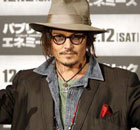Asia-Pacific
DPRK says it understands need for nuclear talks
(Agencies)
Updated: 2009-12-11 13:21
SEOUL, South Korea: The Democratic People's Republic of Korea(DPRK)said Friday that it understands the need to resume the stalled international talks on ending its nuclear programs, and that it agrees to work with the United States to narrow unspecified "remaining differences."
The statement from DPRK's Foreign Ministry was the first reaction from the nation to three days of high-level talks with President Barack Obama's special envoy. Upon returning from DPRK on Thursday, envoy Stephen Bosworth made similar remarks in Seoul that the two sides reached common understandings on the need to restart the nuclear talks.
The North said in the statement that this week's meetings with the US "deepened mutual understandings, narrowed differences in their respective views and identified not a small number of things in common."
"A series of mutual understandings were also reached on the need to resume" the nuclear talks and to implement a 2005 disarmament pact, the DPRK said in a statement, carried by the official Korean Central News Agency.
It did not elaborate what those remaining differences are.
In Washington, US Secretary of State Hillary Rodham Clinton told reporters that for a "preliminary meeting, it was quite positive."
State Department spokesman P.J. Crowley urged the DPRK to make a firm commitment to return to the negotiating table.
"They have to make the fundamental decision, and we did not leave the meeting today believing that they had crossed the threshold that we want to see them cross," he told reporters. "We want to see them come back to the six-party process."
DPRK believed capable of building at least a half-dozen atomic bombs -- had been negotiating since 2003 with the US, China, Japan, Russia and South Korea on dismantling its nuclear program in exchange for much-needed aid and other concessions.
The DPRK ditched the talks earlier this year in anger over the international criticism of its ambitions to develop rocket technology that could be used one day to send a long-range missile hurling across the Pacific.
Weeks later, the regime conducted a nuclear test, test-fired a series of ballistic missiles and threatened to restart its nuclear reactor. The defiance earned widespread condemnation and tighter UN sanctions. Pyongyang called it a US-North Korea issue, and demanded bilateral talks.











